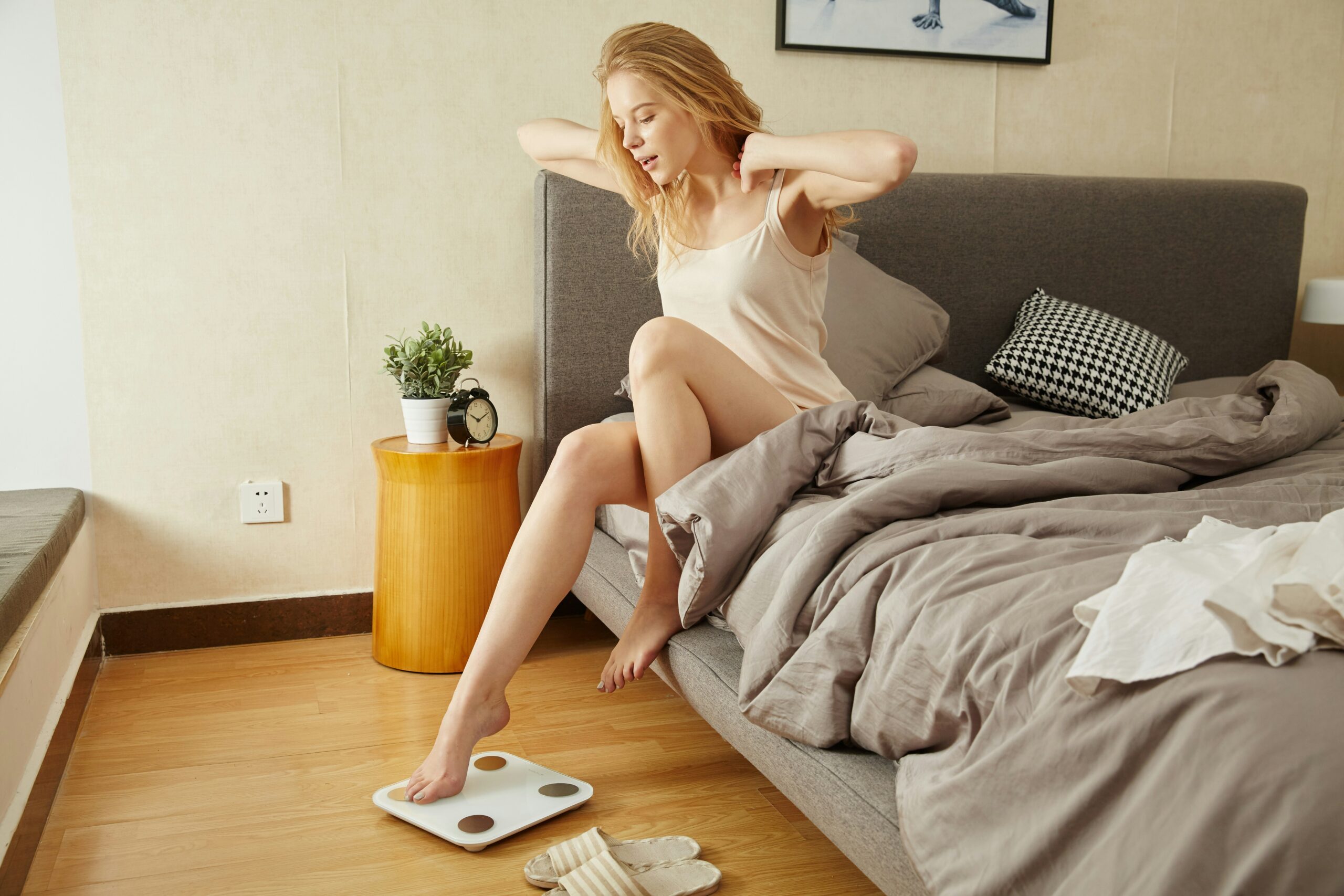Introduction
Productive night routines are what improved my sleep quality, quantity, and ability to fall asleep quicker. People often realize the benefits of a morning routine, but not a night routine. Why is this?
Well, what components actually make up a night routine? Most people don’t know what they’d do at night for it to be a routine, so no one really knows the benefits of a night routine.
This blog will explain the benefits of a night routine, and what you should actually include in a night routine. In my opinion, night routines and morning routines have the same importance.
The Importance of a Night Routine for Productivity
Productive night routines set the stage for the next day. For example, falling asleep quickly can give you a better quantity and quality of sleep, leading to a more accomplished day. Or, you could sleep unstressed and wake up feeling relaxed and calm.
Productive night routines have an abundance of benefits, so not having one is harmful for you and your goals. Foundations like the Sleep Foundation outline several scientific benefits to a night routine, like:
- Feeling naturally tired before sleeping
- Allowing Melatonin (chemical that makes you sleep basically) to be released in the body
- Prevent stomach issues from plaguing sleep
- Fall asleep quicker
- Release physical and mental tension before sleep
- Many more benefits in this same ballpark
A well-established productive night routine can prepare you for tomorrows work. For example, if you like to wake up early and finish your hardest task, a night routine makes you wake up more relived and ready to work.
Or, if you start your day off fast, your body will be less drowsy and more prepared to get ready quickly. The benefits of productive night routines are endless.

Key Habits to Include in Your Productive Night Routines for Success
These are the habits that must be in your routine for the best advantages. I have tried out a lot of scientifically backed night habits, and these are the most effective ones I’ve found.
Reading
Reading is, in my opinion, the best habit to have in your productive night routines. I can’t stress enough how useful reading has been in my night routine.
The main advantage of reading is falling asleep quickly right after you read. Scientific studies show that reading before you sleep improves how fast you sleep, the quality, and the quantity. Furthermore, reading before you sleep helps you spend your remaining energy on reading to maximize how sleep you become.
In addition, there are also the obvious benefits of reading before sleeping. Firstly, reading helps your body in several ways, and it would take a whole blog to outline the benefits of reading. However, I will a few here, reading helps you learn more, write better, focus more often, become more mindful, etc.
Reading, like sleeping and meditation, can affect every aspect of your life. So, if you’re not reading yet, you should 100% start reading.
PS: Reading on your kindle is fine, it’s not really an “electronic”
Meditating
Meditating is one of the most effective habits in any area of life. Whether you meditate in the morning, afternoon, night, it doesn’t matter, because meditating will help. Meditating before sleeping, however, has some unique benefits that you only really get at night.
First, meditating will tire you out (obviously), and allows you to focus any energy left on your breath. Furthermore, meditating calms you down and lets your mind sit still without racing around. This is especially useful if you often remember embarrassing memories before you sleep, meditating helps in preventing these thoughts.
Finally, meditating is the perfect way to set yourself up for success the next day. Meditating right before you sleep will help you wake up with a calm mind, and sleep with a calm mind.
Shutting Off Electronics
Probably the most obvious habit here, however, most people don’t do this habit. Actually, out of all the habits on this list, shutting off your electronics is often not present in people’s productive night routines. A lot of these night routines go “Shower, poop, and then scroll Instagram for 5 hours, then sleep”.
Your phone is horrible for your sleep, whether it be the blue light suppressing Melatonin, or the stress that comes with text messages, or even the doom scrolling on social media, your phone doesn’t belong in a night routine.
You should stop using your phone 1 hour to 30 minutes before you sleep, and this should be non-negotiable.
Obviously, this is easier said than done, so how do you actually stop using your phone before sleeping?
Well, the best way is to download an app like Opal or Jomo, and set up a blocking session from 30 minutes before you sleep, to 30 minutes after you wake up. You don’t need to pay for these apps, just use the free version, however, paying for the apps is not a bad idea if you can.
The point is that you’ll be kicked off your phone, so if you’re in the middle of doom scrolling, or just aimlessly texting, you’ll get kicked off and realize what you were doing. Another method I’ve seen people do is to just give their phone to someone else before they sleep, which works really well also.
No matter what method you pick, stop using your phone before you sleep.
Journaling
A simple but effective method to actually relax and get rid of your stresses. You write down what you did today, and what you want to do tomorrow. That’s it.
You can relax your mind and body by just putting your thoughts on paper. You just have to Journal for 5 minutes before you sleep, and you can improve your sleep just like that.
Bathroom Routine
This is actually something most people do, but, I just wanted to throw it in. Most people sleep, brush their teeth, and use the bathroom right before they sleep. However, there’s a better way to do all of this that most people neglect.
Think about yesterday, what time did you shower, and what time did you sleep? If you didn’t shower within 1 or 2 hours of sleeping, then you’re missed on the sleep benefits that come with showering. Studies show that showering 1-2 hours before you sleep helps lower your body temperature before sleeping, and increases your sleep quality.
Most productive night routines include some type of a bathroom routine, however, you should try to do these all at the same time, every day. This because you’ll start to associate this bathroom routine with sleepiness, and preparing to sleep.

How to Actually Structure your Productive Night Routines
So far, I’ve only talked about the benefits and habits you should take up in your night routine. However, I haven’t actually made a routine with you, or discussed how to create the routine.
So, without further ado, let’s do it.
Let’s say we want to fall asleep at 10, I would start the night routine 1 hour before, so we would start it at 9. Next, I would create a table in some document (Example below) where you have this routine sketched out. The first step we take is to get rid of our phone, and to go into our bathroom routine.
Let’s assume that takes 15 minutes, now we should probably Journal for the next 10 minutes. It’s 9:25 now and we still have to meditate and read. I want to read for 25 minutes, and meditate for 10. It’s now 10:00, and we can go to sleep.
| 9-9:15 | Stop using phone, do bathroom routine |
| 9:15-9:25 | Journal thoughts out |
| 9:25-9:35 | Meditate |
| 9:35-10 | Read a Book |
| 10 | Turn off the lights and go to sleep |
As shown with the table above, that is how you should set your day up to be. Simple as that, just put the times and what you’re doing at each time. You can edit the times for yourself as you repeat this night routine every day, but just know that your routine should look something like this

Avoiding Common Nighttime Pitfalls in our Productive Night Routines
There are several issues that can arise out of our night routines, so I’ll list the most common ones I’ve ran into and how I dealt with them. Keep in mind that you probably have unique problems, so you might have to research more into these.
I sometimes deal with taking too much caffeine throughout the day, which makes it much harder for me to fall asleep. I just deal with this with the rule of thumb that you shouldn’t have caffeine 8 hours before you sleep.
However, if you keep struggling with having caffeine, you should slowly reduce the amount you have every day until you can stop taking in caffeine 8 hours before.
Another problem I often had was remembering a task late in the day, and scrambling to finish it. In order to overcome this problem, I started setting up to-do lists for the day and making sure I finish the list every day before I sleep. This way, I wouldn’t suddenly remember an assignment due tomorrow.
Lastly, I would sometimes eat right before I sleep, which would upset my stomach and keep me awake longer. You shouldn’t eat heavily an 1 or 2 before you sleep, so just keeping that in mind can help stop the late night hunger. Having a tiny snack here or there is fine, just don’t eat a lot before you sleep.
I also dealt with taking naps in the middle of the day, however, the way I cured this was through getting better sleep. That was the only method that worked for me, I tried everything else.

Conclusion
Productive night routines are key to having a good night of sleep, and a good morning. There are several habits to include in your night routine that helps improve your sleep the next day. However, you should be wary of the problems that come with these habits, and how to deal with them
Always remember thought that
Nothing changes if nothing changes

